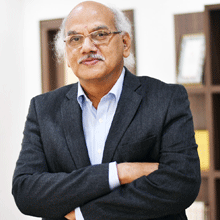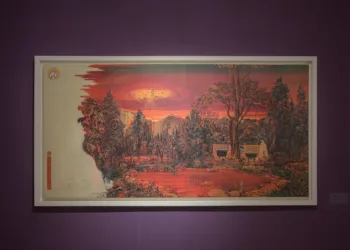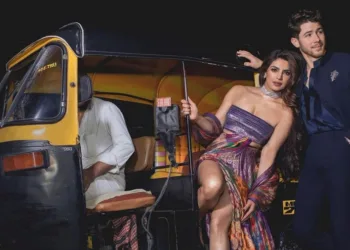Santosh Choubey, Director General of Vishwarang Festival and Chancellor of Rabindranath Tagore University (RNTU), is the brain behind the first-of-its-kind festival in India that focuses on Indian languages, arts and literature. This year, the mega event Vishwarang 2022 organised by RNTU and the Tagore International Centre for Arts & Culture, Bhopal, presented kaleidoscope of Indian culture.
Besides being deeply involved in various literary and cultural activities, Santosh Choubey is a renowned Indian social entrepreneur and educationalist. In 1985, he founded the All India Society for Electronics and Computer Technology (AISECT), an organisation that has been playing a key role in bridging the IT literacy gap between urban and rural India though a network of over 9000 centres. A multifaceted personality, the eminent educationist and litterateur spoke to Vishal Duggalof Pravasi Indians during the recently-held Fest in Bhopal.
Excerpts of the interview…
Let us know your views on Vishwarang and its changing trends year on year in terms of its vision.
We have been working in Indian languages including Hindi for over 30 years. Actually, we started working in 1990. It went on in various ways such as giving awards, printing and publishing books and organising several small conferences. But as India and Indian languages require much bigger projection outside, we started Vishwarang Festival in 2019. Vishwarang provides centrality to Indian culture and languages. I’m sorry to say, generally, there is a kind of elitism and lack of Indianness in other festivals which are completely dominated by publishers lobby.
We believe language is beyond all differences and we should come together to project Hindi to the outside world. Our differences are within the country but outside people look at India for leadership in arts, culture and literature, and the eternal tradition of Indian languages that requires a bigger intervention. In 2019 about 12 countries came together when we invited them for the festival. Then Covid arrived and that actually proved our point that development directions had to change. In 2020, we had technology-based online mode such as YouTube and other social media channels and reached out to more than 1.5 crore people. Performers from Australia, UK, Germany, Russia, US – both Indians and non-Indians – all participated and they were actually feeling frustrated with regard to the pandemic restrictions.
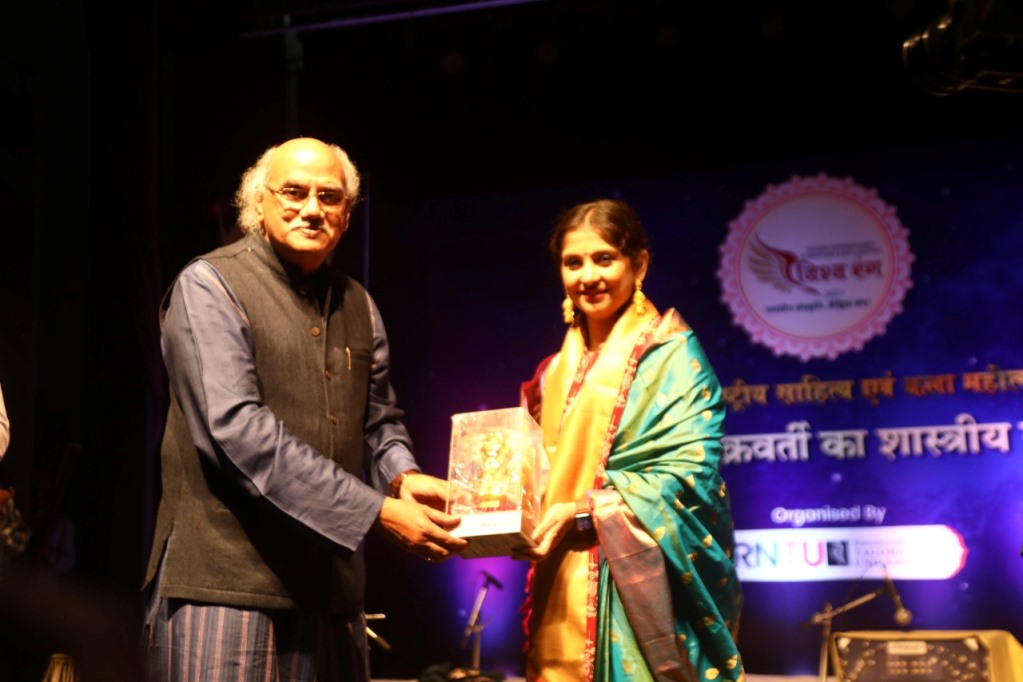
Now we are holding the festival in a blended mode, we are doing it in physical mode also and it’s being disseminated the world over through various media platforms. For example, Doordarshan itself covered the inauguration function and it was telecast to 110 countries. Our Facebook Live and YouTube channel are attracting a huge number of visitors.
We have now broadened our horizons from Indian languages to dialects, tribal culture, painting exhibitions, children and tribal community festivals. So that way, Vishwarang has become more multifarious. In terms of the number of countries, today there are 50 countries participating in the festival.

We find Vishwarang reaching to several countries in the world. How far do you think you have been able to provide an opportunity to the Indian diaspora to rediscover their roots?
I think over the years, Indian diaspora has also changed. In times of, say British Raj, they went out to Mauritius, Surinam, Fiji or the West Indies as workers from India. The new generation of NRIs is now holding important, responsible positions and has become equal partner in the growth of their adopted countries. In addition to nostalgia, there is also local participation and the joy of living in that country, which is now reflected in their literature. So, we were able to collect the 10 to 15 literary groups of Indian diaspora in the first year. When we started online work, they were actually waiting for somebody to come and provide them a platform.
The main problem with the Immigrant Literature is that they are not getting serious attention from the mainstream literature and media. So, they feel left out. What we did we was to hold their hands, get their books reviewed and their books started talking. Even in this festival, there are several sessions on diaspora literature and they are discussing poetry, fiction and non-fiction. There are many serious writers participating in the festival like Divya Mathur, Kusum Bedi, Tejendra Sharma, Hansadeep, and Rekha Rajvanshi.
I would say that we have touched upon the hearts of expat Indians and this year also a large number of NRIs are attending the festival.
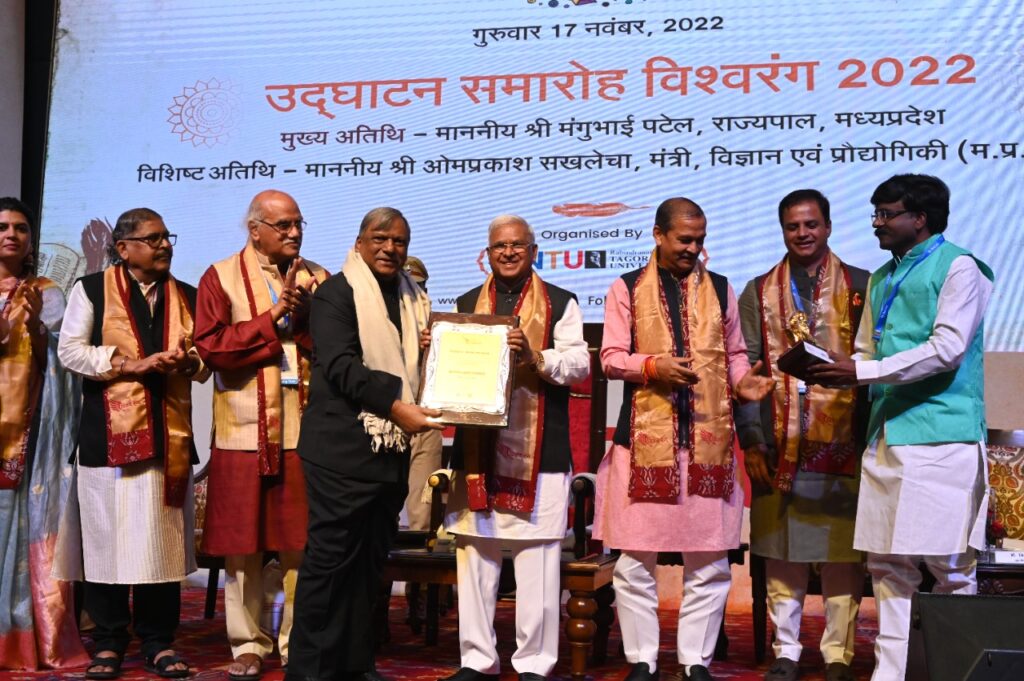
Every year, do you also have a particular theme of the festival?
Yeah, the first year festival theme was internationalism of Tagore and Gandhi’s vision of development. It explored that new path should come up for development especially because the older theories and ideologies have not done any good to the world. The Fest’s 2020 edition was organised through the online mode. In 2021 it was organised in hybrid format with both online and offline performances. These editions catered to literary communities starved of the arts in COVID-impacted years.
This year, Vishwarang is being organised completely offline. It also shows it emergence out of the shadow of Covid in a way. This year, the world is facing raging conflicts and geopolitical turmoil. So, our 2022 theme is love and compassion.
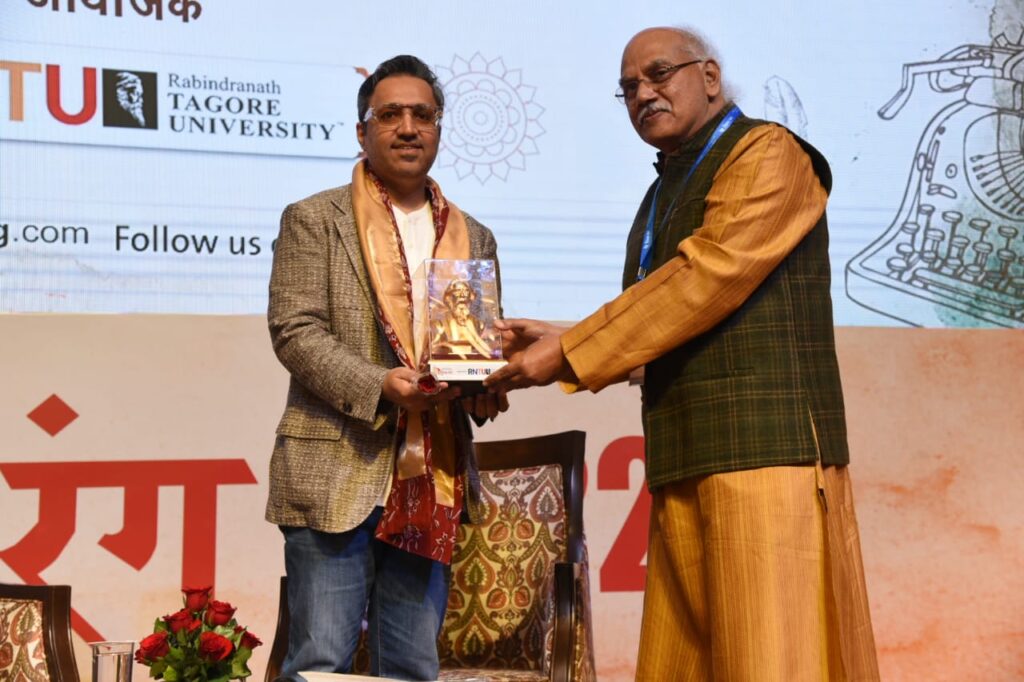
Do you think Gurudev Rabindra Nath Tagore is more relevant today than ever?
Yes, in fact, we have been saying that after the 1990-92 Cold War there is no global vision and we actually need an edifying vision which can connect us. Tagore’s global vision was beyond boundaries – Unmukt Literature – that way he is also respected across the world.
His books too have been translated in many languages?
Yes and similarly that of Gandhi Ji. I think both of them are more relevant now.
As an Indian social entrepreneur and educationist, what are your current thoughts on Indian education system? How can we improve it for a better tomorrow for the next generation?
I would say that National Education Policy has lots of positive features. For instance, it talks about education in Indian languages which is a very relevant thing to do. Secondly, it talks about interdisciplinary study wherein an engineer can learn humanity to become a complete individual. Similarly, students have to learn at least one more language with the help of their mother tongue or the native language.
Would you like to encourage more and more people to learn Hindi?
We respect all the Indian languages. But what’s wrong if people of South India learn Hindi, and similarly North Indians learn one or more of the south Indian languages,
How is Vishwarang different from other cultural festivals in the country?
Vishwarang is different in many ways. It has no narrow ideological divisions; it provides centrality to Indian languages, and Indianness. It’s interdisciplinary with sessions on various genres—philosophy, literature, arts, tribal culture, entrepreneurships, and many more.
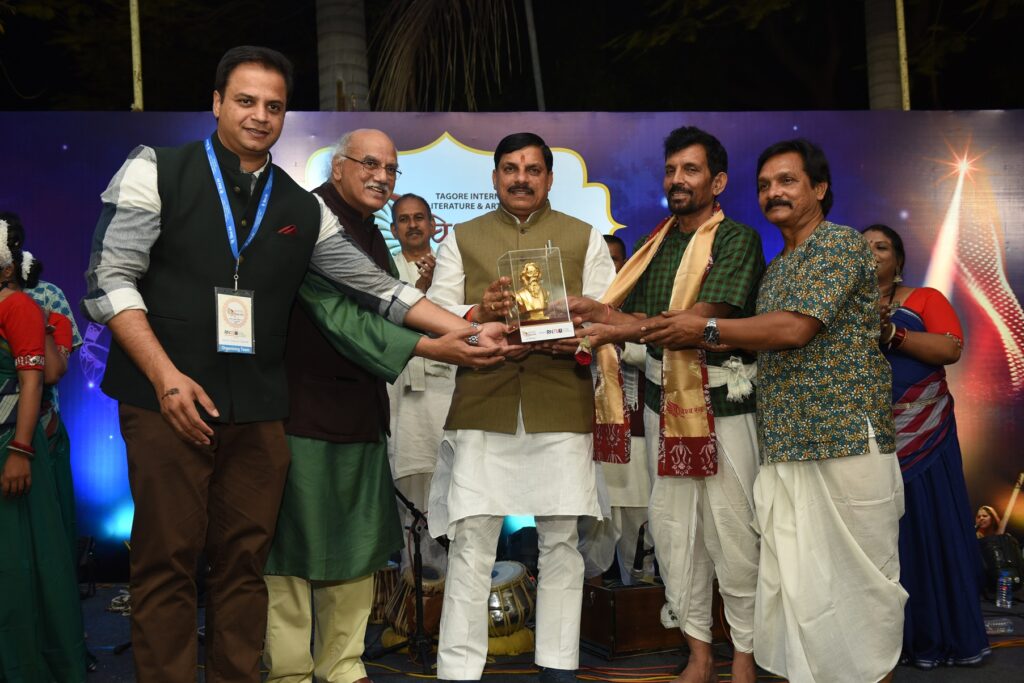
Do you think it has been successful in breaking the barriers of intellectual snobbary and ideological bigory?
Yes, we have managed to break the boundaries within the communities; languages and also brought about social inclusion of writers. We invite artists and writers from across the spectrum.
Are you able to give Indian culture and languages a global platform through this festival?
Yes, apart from providing a global platform to Indian languages, Vishwarang also holds a mirror to the richness and diversity of Indian culture.


